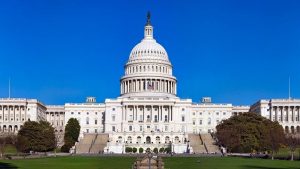The Washington Department of Fish and Wildlife (WDFW) has finalized a drone use plan that authorizes staff to conduct pinniped (also known as seals) research and management surveys in the state’s coastal and inland waters.
The General Services Administration’s (GSA) Technology Transformation Services (TTS) group announced that Login.gov will now offer facial recognition technology to all of its partners as an identity verification offering.
The Illinois State Police (ISP) is looking to improve road safety for drivers and law enforcement with a new emergency alert system that would provide more crash notifications via popular traffic apps.
The state of California has launched its redesigned CA.gov website as part of the state’s ongoing digital strategy to improve user experience, accessibility, and service delivery for state residents.
The Institute for Education Sciences (IES) announced four new research and development centers focused on expanding generative artificial intelligence (GenAI) for K-12 classrooms, teachers, and students.
Kansas Gov. Laura Kelly announced that the state will open applications for the National Telecommunications Information and Administration Internet for All initiative on Oct. 21.
The City of West Palm Beach, Fla., is piloting a new way to inform and engage its community about the technologies used in the city’s public spaces.
State, local, and territorial (SLT) governments are in line to receive $279.9 million in grant funding in fiscal year (FY) 2024 State and Local Cybersecurity Grant Program (SLCGP) according to an agency announcement on Sept. 23.
Legislation introduced in the House on Wednesday aims to create a cybersecurity training program that will provide Federal scholarship support in exchange for two years of service with governments at all levels in cybersecurity roles.
The Hawaii Department of Taxation (DOTAX) announced that it has upgraded its tax system in an effort to improve performance, security, and user experience.
Archives
- June 2025 (1)
- December 2024 (1)
- November 2024 (1)
- October 2024 (1)
- September 2024 (1)
- August 2024 (1)
- July 2024 (1)
- June 2024 (1)
- May 2024 (1)
- April 2024 (1)
- March 2024 (1)
- February 2024 (1)
- January 2024 (1)
- December 2023 (1)
- November 2023 (1)
- October 2023 (1)
- September 2023 (1)
- August 2023 (1)
- July 2023 (1)
- June 2023 (1)
- May 2023 (1)
- April 2023 (1)
- March 2023 (1)
- February 2023 (1)
- January 2023 (1)
- December 2021 (1)
- October 2021 (1)
- June 2021 (1)
- May 2021 (2)
- April 2021 (2)
- March 2021 (4)
- February 2021 (1)
- February 2020 (1)
- October 2019 (2)
- September 2019 (3)
- August 2019 (1)
- July 2019 (2)
- December 2018 (1)
- February 2018 (1)
- September 2017 (3)
- November 2016 (2)
- October 2016 (3)
- September 2016 (1)
- April 2016 (1)









